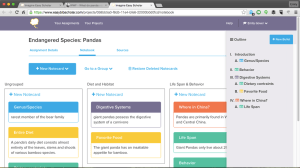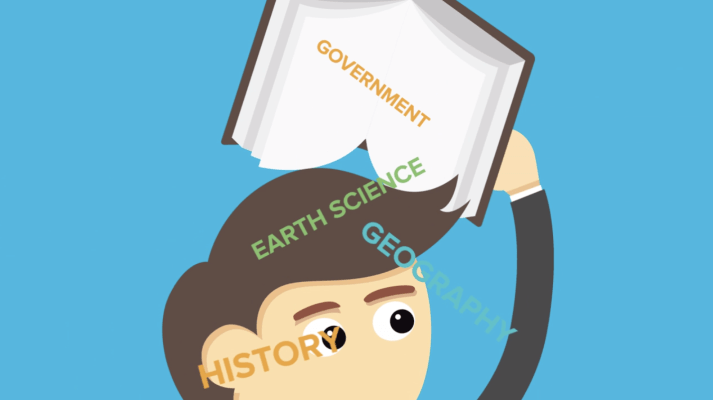If you’ve had to write a research paper in the last 10 years, chances are the free online bibliography tool you used is operated by Imagine Easy.
The edtech company has flown under the radar for the past 14 years since it was started by two high school students, Neal Taparia and Darshan Somashekar. It’s gradually grown to over 100 million annual users and over $12 million in annual revenue without accepting any venture funding.
Today the company is announcing the launch of a new product, Imagine Easy Scholar, that takes its online citation tool a step further by educating students about best research practices and allowing them to collaborate with their teachers in real time.
“Students today are just inundated with information, and they don’t know how to properly organize it or think about it,” says Taparia . “Teachers to date have only graded the final paper, but we want to allow the teacher to see the entire thinking process.”
Scholar has an Evernote-like extension that allows students to highlight different websites or PDFs and organize the information in a digital notebook. The tool integrates with Google Docs, so students can drop the information into a paper and it automatically cites it for them. By easily accessing notes and sources, teachers can better understand their students’ thought process and workflow.
Providing tools for staying organized and writing bibliographies is only the first step — the real problem that Imagine Easy is trying to solve is teaching students how to properly research.
“We started looking at our citation data, and it’s crazy what kids cite,” says Somashekar. “Wikipedia is the most commonly cited source, and YouTube is in the top five.”
The second part of the new product, called Imagine Easy Academy, teaches the pedagogy around research and writing skills. Social Studies students, for instance, can use Academy to learn how to look at maps and charts to come up with primary source arguments.
Imagine Easy has been beta testing Academy with 200 teachers over the last six months, and Somashekar says they’ve been able to prove that students’ research skills improve by an average of 30 percent after a semester using the product.
The company will be rolling out the service for the 2,000 schools that currently subscribe to other Imagine Easy products in the next month.
“The way we consume information is changing, and there’s a problem with how students are doing it right now,” says Taparia. “Hopefully they get good grades, but no matter what, they’ll need to know how to properly research when they graduate.”
